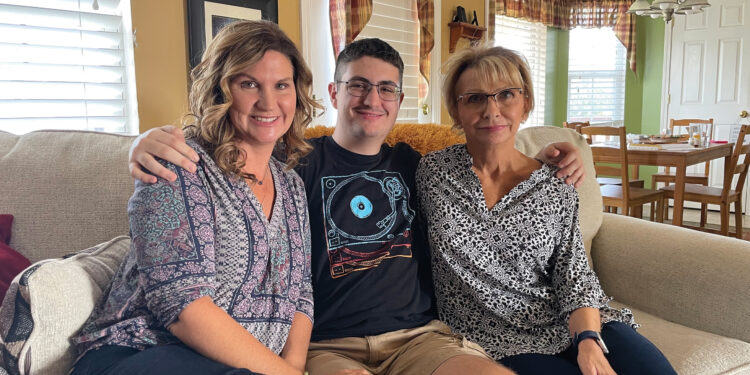Allowing Progress in Kentucky Families’ Lives
Kristin Wilcox’s daughter Shelby was born a healthy baby in 2005, until one day when Kristin went to her crib and found her having a seizure. It wasn’t until 2008 that she was diagnosed with Dravet Syndrome, a rare and deadly medication-resistant form of epilepsy.
Doctors told Wilcox many children with Dravet die by age 2. Shelby, at age 3 had a very grim life, as she experienced hundreds of mini seizures and several larger ones daily, and cognitive function declined.
“Her neurologists were doing the best they could. We tried every medication available for anti-epileptic medication and cocktails of many combined, and nothing was working. I watched my daughter, she was just done,” she recalled.
Then, she heard the story of another Dravet patient that saw progress through medical cannabis. The neurologists did the research and saw several similar successes.
Even though it was illegal then, the doctors recommended she find a reputable source.
Now, at age 17, Shelby is living a much better life, her mom said. Her seizures have decreased to once a week.
“Instead of just being this zombie-like blank stare, she for the first time showed that she had a personality. She was laughing. She was mischievous. She was loving and social. It was wonderful,” Wilcox said.
Now, separation isn’t a consequence anymore as Governor Andy Beshear passed an executive order granting Kentuckians with 21 medical conditions the ability to receive legal medical cannabis treatment.
This executive order went into effect shortly the Kentucky General Assembly passed a bill in March, and Wilcox and her colleague, Julie Cantwell, were able to help their families and others through their organization, Kentucky Moms for Medical Cannabis.
Cantwell’s son, Preston, started having seizures at age four, and his drug-resistant epilepsy prevented modern medication from working. When he turned 19, he started using edible medical cannabis, and his severe seizures ceased.
Now he smokes cannabis as a way to directly impact the brain, rather than waiting for it to go into effect hours later.
“It’s a relief that we finally found something. It’s a relief for my son, as well. He is finally able to get his driver’s license and able to drive. He’s able to work and things that he wasn’t normally able to do because the seizures held him back,” Cantwell said.
Cantwell’s mother has Glioblastoma Malforte and was expected to live for more 12 to 18 months. Now at month 13, she said she’s doing great. Her mother uses concentrated cannabis oil to combat a once-growing tumor which is now gone.
“I feel like we’ll have my mom for a long time. She’s doing great; she’s sleeping great; she looks great; she feels great. She’s beating the odds,” Cantwell said.
State Representative DJ Johnson (R) said stories like these are why he voted to pass the bill in March to ensure that veterans, parents with children and people that have these conditions can find some relief.
Originally, the discussion on marijuana legalization in any form was something that he felt the federal government should make a stance on. Yet as years passed, the government seemed unwilling to do so, he felt.
“So, we’re doing it at the state level. That’s why we have funded the University of Kentucky to do research on medical marijuana. We’ll hear back from them I believe this coming session. We’ll hear more from them on their findings. That’s going to help us point in the right direction for where we need to go in the future,” he said.
Johnson said more conditions could be added if the results are positive. Yet, with more conditions being named, Johnson thinks the important part is ensuring pharmacists are included in the conversation, as well.
At its current form, he doesn’t believe that medical oversight from a pharmacist is required by the March bill, and that is a key part going forward for the patients being prescribed medical marijuana.
“We need to take a serious look at that and find some way that we can make sure we’re not having a doctor prescribe medical marijuana and that patient is also taking something else where there’s going to be a bad interaction,” Johnson said.
Nonetheless, he does not see recreational usage being legalized right now because of his exposure to what he calls habitual recreational use, and considers it completely different than controlled medical use.
Wilcox and Cantwell, however, take an opposite stand.
“I don’t care what reason you’re using it. I do believe that it’s all medicinal. I don’t believe in recreational cannabis. I believe that even if you are just using it to unwind, you are still getting the therapeutic or medicinal benefits from it,” Cantwell said. OL










